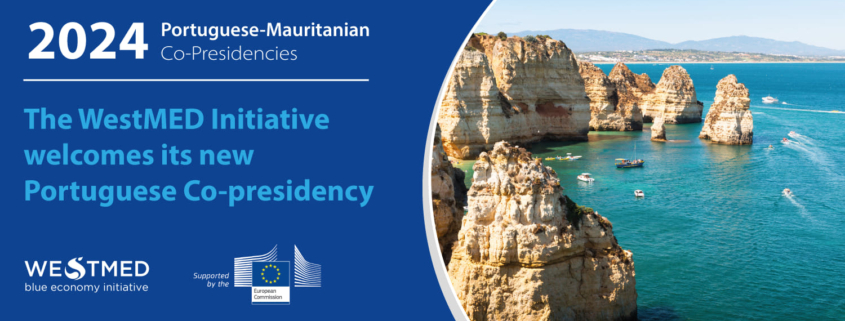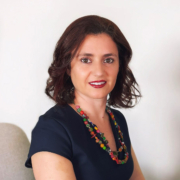The WestMED welcomes its new Portuguese Co-presidency – A message from the co-chair
As of 2024, Portugal will co-chair the WestMED Steering Committee for 2 years. It will do so together with Mauritania that had already assumed this position in 2023. This will be in accordance with the principle of rotation among the participating countries of the WestMED Initiative. Portugal will take over the baton from Malta that has successfully co-chaired the Initiative for the past 2 years.
We asked Marisa Lameiras da Silva, Director General for Maritime Policy and Portuguese Co-chair of the Westmed Initiative, for her views on the task ahead.
What will be the main focus of the Portuguese Co-Presidency, to further build on what was accomplished in these past 5 years of the WestMED Initiative?
The Portuguese and Mauritanian WestMED Initiative co-chairs have a great responsibility to move forward the work of this sub-basin strategy.
2023 was a great year for the WestMED Initiative because in January the Report from the Commission to the European Parliament and the Council was released on the implementation of the Western Mediterranean Initiative. Also, in June, Malta hosted the WestMED Initiative Ministerial meeting in Valetta where a ministerial declaration was adopted with a clear focus on the future. Next to this, a clear mandate was given with a new joint Assistance Mechanism inviting combined work and synergies with the Common Maritime Agenda for the Black Sea and the Atlantic Strategy.
The focus within the Steering Committee is to operationalize these three topics. With France as chair of the Atlantic Strategy Committee we are going to work on synergies between the two sea basins. The WestMED Initiative Steering Committee must therefore understand the goals of the Atlantic Action Plan and decide in which areas synergies can work.
Another priority is related to the Report from the Commission on the implementation of WestMed Initiative, which includes a section that needs to be addressed: “Raising awareness and enhancing visibility.” A key focus for 2024 is to debate and decide on how to operationalize this topic.
Next to the WestMED Initiative, Portugal is also involved in the other EU Sea Basin Strategy: ‘the Atlantic Action Plan.’ Given the fact that there are many common challenges between the 2 sea basins, how do you foresee strengthening the synergies between the two?
The Western Mediterranean and the Atlantic are bordering maritime areas. Both sea basins have a legal and operational framework to unlock the blue economy potential and in the WestMED Initiative Steering Committee and Atlantic Strategy Committee, member states are very active to achieve this goal.
Portugal is aware that these two sea basins have much in common but also things that separate them. The idea of synergies between the work of these two sea basins is very positive. As a Committee, we must identify these common areas and collaborate on them with our Atlantic partners.
The Steering Committee plays a crucial role in these endeavours, and we look forward to receive constructive feedback and contributions from our member states colleagues.
What is your main message to the WestMED Blue Economy Stakeholder Community?
Allow us to quote the 2017 Communication from the Commision to the European Parliament, the Council, the European Economic and Social Committee and the Committee of the Regions ‘Initiative for the sustainable development of the blue economy in the western Mediterranean’:
“The maritime economy of the western Mediterranean region has huge potential for development in all related sectors. The region has 200 ports and terminals and nearly 40 % of all goods (by value) pass through the Mediterranean. The western Mediterranean region attracts the largest number of tourists in the Mediterranean basin, in part because of its art and cultural wealth. It is a biodiversity hotspot, with 481 marine protected areas, including Natura 2000 sites. The region is a rich fishing ground, accounting for over 30 % of the total value of landings at first sale in the Mediterranean and providing more than 36 000 direct jobs on fishing vessels.”
The 2023 report on the implementation of WestMED released an important information relevant for all stakeholders: “The WestMED initiative has supported member countries in developing project proposals, many of which were successful in obtaining funding. This has been greatly appreciated by the countries. So far, 79 projects ideas have been actively supported by the initiative’s central team and national hubs. They are worth a total of about EUR 92 million. Additionally, more than 160 projects are aligned with the initiative and involve around 600 partners from the member countries.”
The main message is that the potential of the Blue Economy in the region of Western Mediterranean is a reality and everyone can play an important role. The Western Mediterranean is an opportunity for economic growth, job creation, investment, research, partnerships and cooperation.


